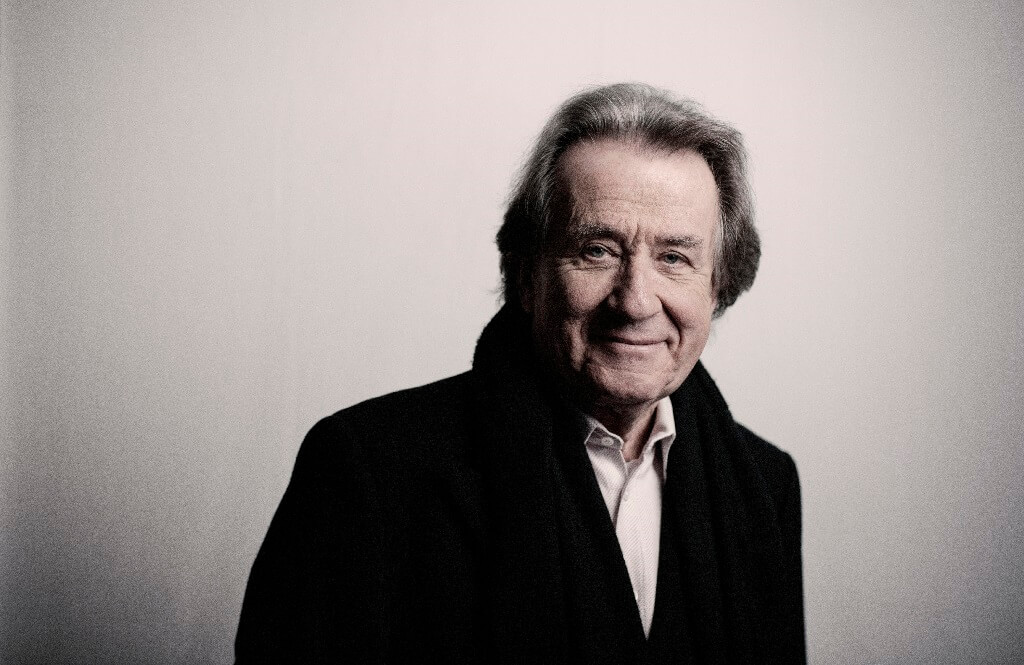
OK, je le prends. Despite my initial skepticism over the concept driving the OSM’s four-day “Brahms and the Art of Film” (Le 7e Art et Brahms) cycle at the Maison symphonique, I could accept the final instalment as a pleasant sampler on a Sunday afternoon. Tenuous connections are connections just the same.
Of course, Rudolf Buchbinder put me in a good mood at the start with a radiant performance of Beethoven’s Piano Concerto No. 4. Heck, this old-school Austrian put me in a good mood in the first five bars by playing the rising scale in the right hand not as an ornament but as a ladder that leads to lofty thoughts.
Seldom have I heard the subtle mix of pearly tone and pensive philosophy that this great concerto embodies like no other realized as authentically. Phrasing was elegant, sounds were luminous, yet nothing seemed pretty for its own sake. There was firm bass support from the Steinway in the first-movement cadenza. A noble life, after all, is built on a foundation.
The Andante con moto is rightly celebrated as a study in contrast, but here the emphatic strings and passive piano seemed aspects of the same soul. The orchestra under Kent Nagano sounded inspired.
At the beginning of the finale we heard subtle rubato of the type that often distinguishes artistry in the Romantic era applied with complete propriety to Beethoven. A wrong note created an interlude of caution but this did not last. The conclusion joyously resolved all the inner doubt. What a poet this pianist is.
Then the lights went down. Showtime! Our NFB short on this occasion was Nails, a 1973 film by Phillip Borsos that recounts in mechanical detail the steps involved in the manufacture of nails, then and now. There was some celebration of red-hot geometric forms in the foundry. The cooling relief of water was palpable. I predict no future as absolute music for Heartbeats, the pulsing score by Régis Campo, a French composer who sought to make a connection with “a human body’s inner life.” Still, it worked wonderfully with the film. The beating of a heart was perhaps not the only example of bodily engagement that came to mind.
After intermission we heard Brahms’s Fourth Symphony as played by a different squad of OSM musicians than those who had dealt with the First on Thursday. The octobass was involved, but not as often or as audibly. Perhaps I was seated in the octobass “sweet spot” in the earlier concert.
At any rate, there were not enough strings to carry the tragic majesty of this work, particularly at the tempo Nagano chose for the Andante moderato. Much of the performance was subdued. Still, there was evidence of the conductor’s recent interest in tempo manipulation. I wonder how his Brahms would sound with a full-staff European orchestra.
Medici.tv was on hand Friday night, when Buchbinder played Strauss’s Burleske. Here is an excerpt.
ALSO READ:
- SCRUTINY | Azrieli gala a popular success - 22 octobre 2022
- COMMENTARY | Why Playing Political Hot Potato With Artists Is A Terrible Idea - 23 mars 2022
- REVIEW |Tenor Spyres flies high at Lanaudière despite the downpour - 14 juillet 2019



